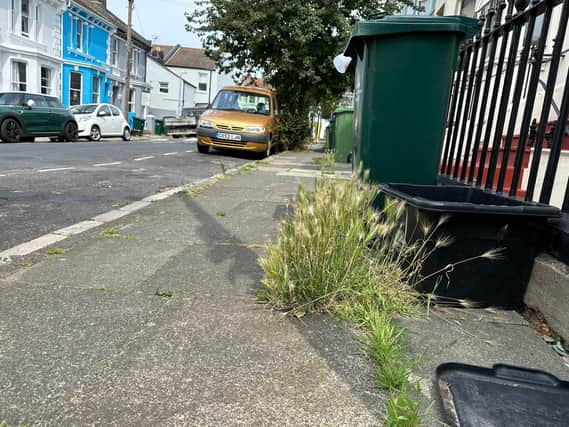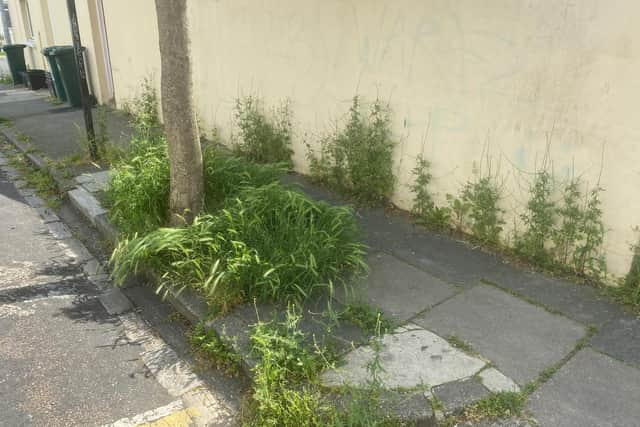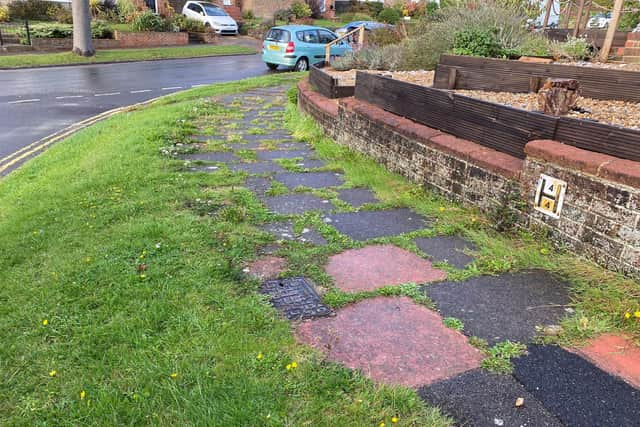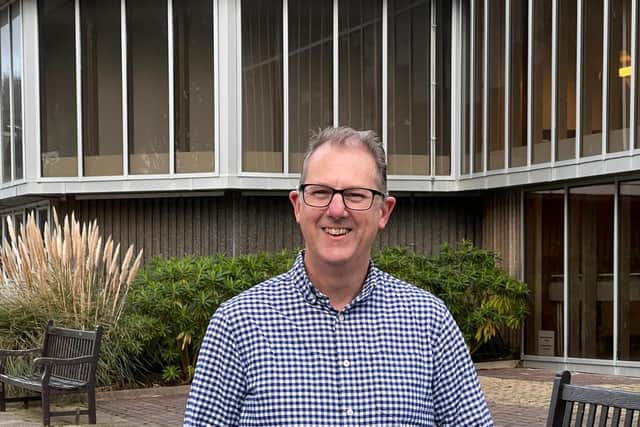Brighton council tenants object to return of herbicide used in their area


Barney Miller, chair of the Sylvan Hall Residents’ Association, shared his neighbours’ concerns about weedkiller being used on the estate in Roundhill.
At a Brighton and Hove City Council housing management panel meeting, where council tenants and leaseholders discuss issues with housing officers and councillors, Mr Miller said that Sylvan Hall residents did not want the “carcinogenic” chemical used there.
Advertisement
Hide AdAdvertisement
Hide AdHe told the meeting on Tuesday (19 March): “The tenants and residents’ association is completely unhappy with the idea of using carcinogenic stuff to remove weeds. They don’t like the idea of putting it on the pavements.”


Green councillor Pete West, who represents Roundhill, said that the Labour manifesto for the local elections last May said: “We will not return to the use of harmful glyphosate.”
Councillor West said: “There’s been a lot of criticism over the last few years of the previous administration’s handling of this matter but it was the Labour Party that ended the use of glyphosate in the first place which was laudable.
“It wasn’t well considered and we had the pandemic which made sourcing equipment and financing costs and getting enough labour together to act upon it very difficult.”
Advertisement
Hide AdAdvertisement
Hide AdMitch Watkinson, vice-chair of the Bates Estate Community Association, said that the council was in a difficult position as weed growth was “a massive problem”.


He said: “We’re stuck between a rock and a hard place. The weed problem is a massive problem, causing slips, trips and falls. They were looking for alternatives.
“The problem you’ve got is: do you want the weeds clearing or don’t you? It sounds like the council is not going to do something irresponsible. It’s obviously been risk assessed. You need to make the decision.”
The council’s City Environment, South Downs and the Sea Committee voted in January to use a “controlled droplet” approach with the herbicide – sold commercially as Roundup – applying it to individual weeds rather than spraying it as previously.
Advertisement
Hide AdAdvertisement
Hide AdLabour councillor Tobias Sheard told the housing management panel that the council had looked for other ways to bring weeds under control.


Councillor Sheard said: “We didn’t want to go back to just spraying which is why we’ve chosen to use the ‘controlled droplet’ approach.
“I understand there’s a long of strong feelings on this and I’ve got strong feelings. Everyone’s got strong feelings. No one wants to be using glyphosate but we are caught between a rock and a hard place.”
He said that in roads that were clear of weeds or where communities were “adverse” to the idea of using glyphosate, the options could include setting up weeding groups with tools supplied by the council.
Advertisement
Hide AdAdvertisement
Hide AdThe return of glyphosate comes five years after councillors of all political colours backed the Pesticide Action Network’s (PAN) campaign to ban the weedkiller.
But since the council stopped using it, weeds have built up on the pavements, causing damage and injuring people and pets.